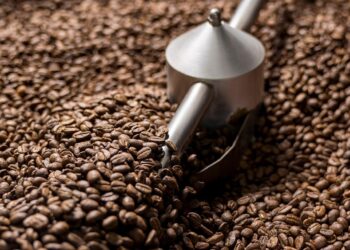Unleashing the Potential of Espresso with Advanced Technology
In the world of coffee, espresso stands out as a quintessential symbol of sophistication and right-generation techniques. Recent advancements in technology have not only enhanced the quality and consistency of espresso shots but also revolutionized the coffee experience for both baristas and enthusiasts. This article explores how advanced technology is optimizing the brewing process, maintaining sustainability, and elevating the sensory experience of espresso.
The Evolution of Espresso Machines
The journey of espresso machines has been marked by continuous innovation. From the manual levers of the early 20th century to the fully automated systems of today, each progression has aimed to refine efficiency and precision in espresso making. Modern espresso machines integrate smart technology, allowing users to control variables such as water temperature, pressure, and extraction time with unprecedented accuracy. Brands like De’Longhi, Breville, and Saeco are at the forefront, incorporating features like touchscreen interfaces and programmable settings, offering a bespoke brewing experience that meets individual preferences.
Enhancing Quality with Precision Metrics
One of the most significant impacts of technology on espresso production is the ability to measure and control every aspect of the brewing process. Advanced espresso machines now come equipped with precision scales and flow-rate meters that monitor and adjust the coffee extraction in real time. Ensuring that every espresso shot adheres to the golden ratio of coffee to water enhances not only the flavor but also the consistency across multiple servings.
Smart Grinders: The Unsung Heroes
The importance of a good grinder in making the perfect espresso cannot be overstated. The recent development of smart grinders has provided coffee aficionados with unprecedented levels of control over the grind size and consistency. Precision grinders, such as the Baratza Sette or the Niche Zero, accommodate micro-adjustments that can significantly alter the taste profile of the espresso, enabling users to explore a wider range of flavors and strengths.
Sustainability in the Coffee Industry
Technological advancements are also making espresso production more sustainable. Energy-efficient machines and systems designed to minimize waste are becoming more prevalent. The integration of filters and other reusable materials reduces the environmental impact associated with disposable components. Furthermore, IoT-enabled coffee machines can track the consumption patterns and maintenance needs, thereby extending the lifespan of the equipment and reducing the frequency and cost of replacements.
Improving User Experience with Automated Features
Convenience is a major factor in the widespread adoption of advanced espresso machines. Features like one-touch brewing, automatic tamping, and self-cleaning cycles not only save time but also make it easier for beginners to brew espresso that rivals the quality of a professional barista. Additionally, some of the latest models are connected to mobile applications that allow users to customize and save their brewing profiles or order their favorite coffee blends directly from roasters.
The Role of Data Analytics in Coffee Brewing
Another revolutionary aspect of modern espresso technology is the use of data analytics. By gathering data on consumer preferences and brewing techniques, manufacturers and café owners can optimize their offerings to better satisfy customer demands. Predictive maintenance, powered by machine learning algorithms, ensures machines operate at peak efficiency by foreseeing potential malfunctions before they occur.
Enhancing Training with Virtual Reality (VR)
The training of baristas has also been transformed by technology. Virtual reality platforms now allow aspiring coffee makers to learn and practice their craft without the need for real coffee or machines. This not only reduces resource waste but also allows for a controlled learning environment where trainees can experiment and learn from mistakes without the fear of wasting expensive supplies.
Frequently Asked Questions about Modern Espresso Technology
1. Can technology truly replace the skill of a professional barista?
While technology significantly enhances consistency and precision in espresso making, the art and skill of a professional barista are irreplaceable for providing a personalized customer service experience and in making on-the-spot adjustments based on the sensory qualities of the espresso.
2. Are high-tech espresso machines cost-effective for small cafes?
Initially, the investment in high-tech machines may seem substantial, but the long-term benefits—such as increased efficiency, reduced waste, and customer satisfaction—can lead to more sustainable business operations and increased profitability.
3. How do I choose the right machine for my needs?
Consider factors such as the volume of coffee you need to produce, the space you have available, your budget, and the specific features that would most benefit your brewing style or business model. Consulting with industry experts and reading reviews can also provide valuable insight.
Conclusion
As the intersection of technology and tradition evolves, the potential of espresso will continue to expand. Advanced technology not only simplifies the brewing process but also improves the quality and sustainability of coffee production. Whether you’re a home enthusiast or a professional barista, embracing these innovations can lead to a more refined and enjoyable coffee experience.





